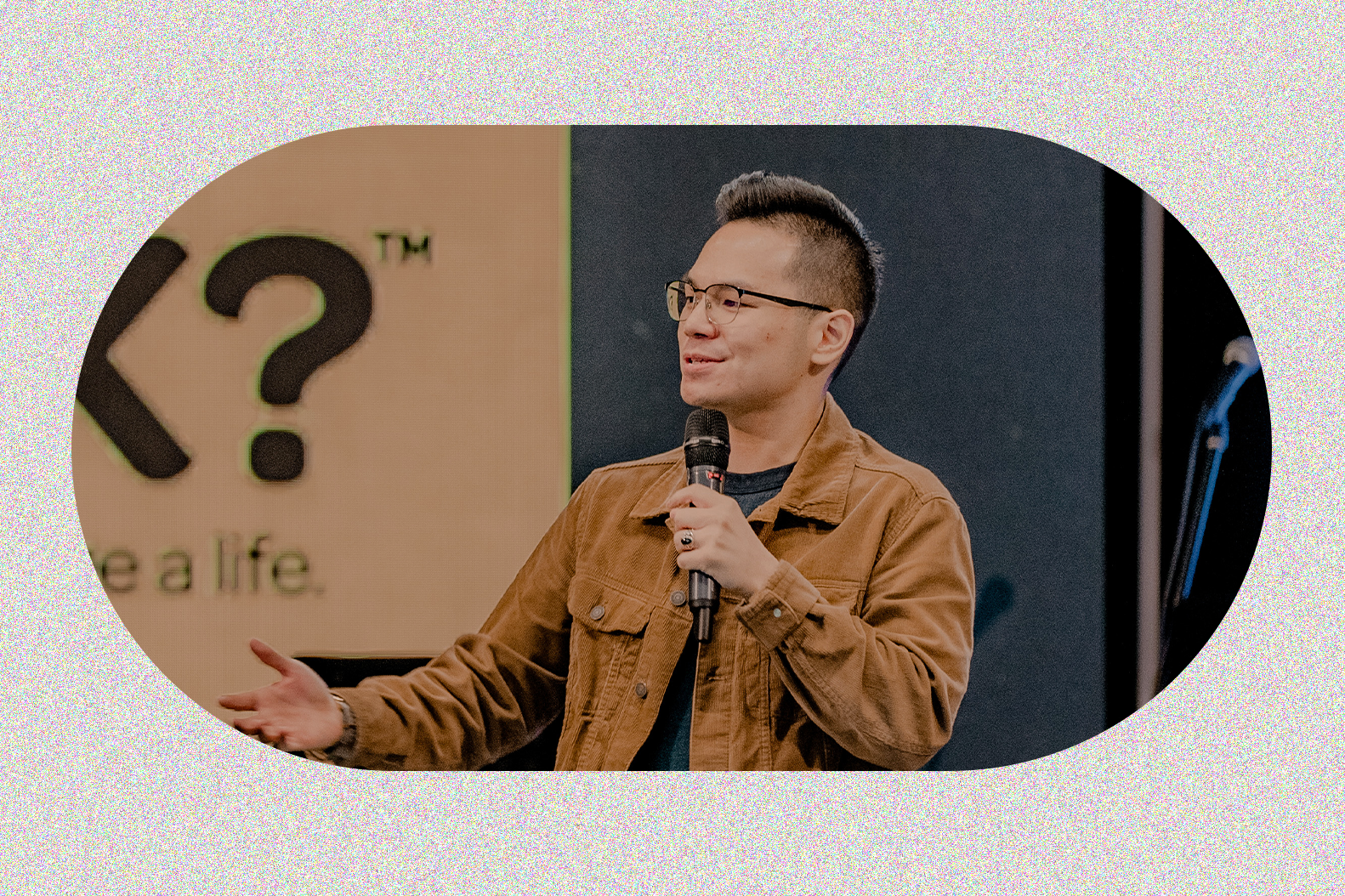The last two years have not been great because I went through my own struggle with emotions.
For myself, it was a bit of a double whammy. Naturally, the pandemic brought a lot of changes.
But the other difference was that our church went through a transition in August 2019 when Pastor Lawrence (Khong) handed over the senior pastor role to me.
With that, there were a lot of expectations.
When we went into 2020, I had a lot of expectations for myself too. I was so excited to go into a new season, but COVID-19 came and everything had to stop.
I saw our congregation struggling with the pandemic as well. And sometimes when people struggle, they tend to lash out at other people.
And who to lash out at? The best person is the person at the top, the person who’s most visible.
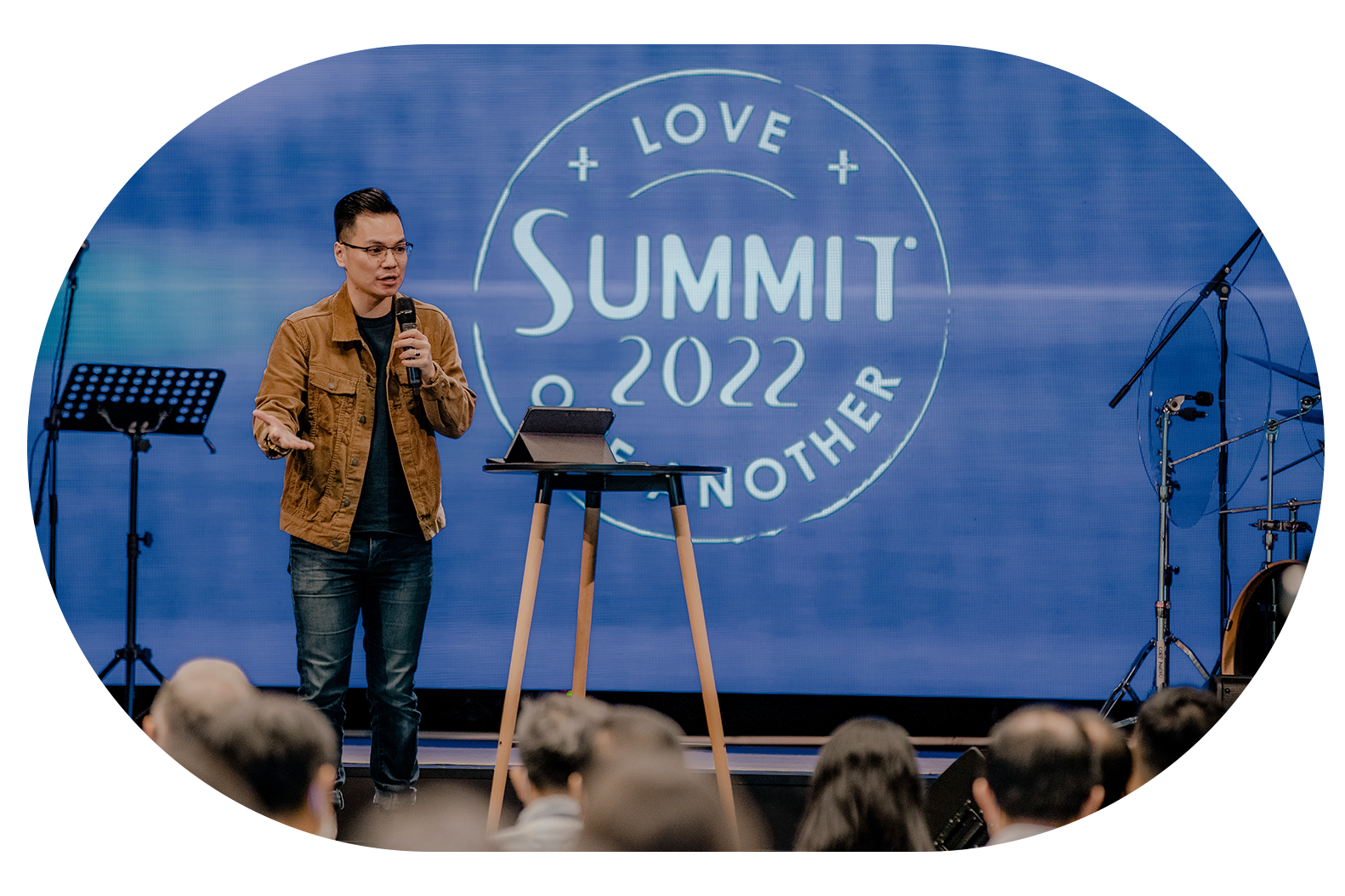
When the pandemic first hit, I remember I was receiving emails all the time.
At the start, around January and February (2020), I was overseas, but I flew back and made it to church to preach.
At that point, we didn’t quite know how bad the pandemic was, so I said we must continue by faith and that we would continue running our services.
After I preached the sermon, people wrote in to me. They felt that we should already close the church because the pandemic was getting bad.
It’s okay to give me your opinion — maybe I needed to see things from a different point of view.
But what they added on was this: “How can you be such an irresponsible leader? Do you not care of the lives of the people that God has entrusted to you?”
CRITICISM CAME, ONE WAY OR ANOTHER
As things progressed, of course we reached a place where we saw the need to shut our services.
We had some positive cases getting very close to our congregation, our leaders and so on. One entire department of our church even had to be isolated because they had exposure as well.
So we quickly shut our services before we were told to do so.
Guess what? A lot of emails came in again, saying: “How can we shut the church?”
One person even wrote to me saying: “How can you be a senior pastor with such little faith?” And it went on.
Other than the pandemic, there was also an ongoing comparison between my dad and myself.
People were unhappy that I did things differently from my dad. People were unhappy that I did things in the same way as my dad!
For any transfer letter out of church, I make it a point to sign and read it. I read every single document that is provided.
And in 2020 to 2021, we saw a steady stream of people exiting our church. Most of the reasons for leaving would come back to something I did or something they didn’t like about me.
It almost felt like, I breathe also can breathe wrongly.
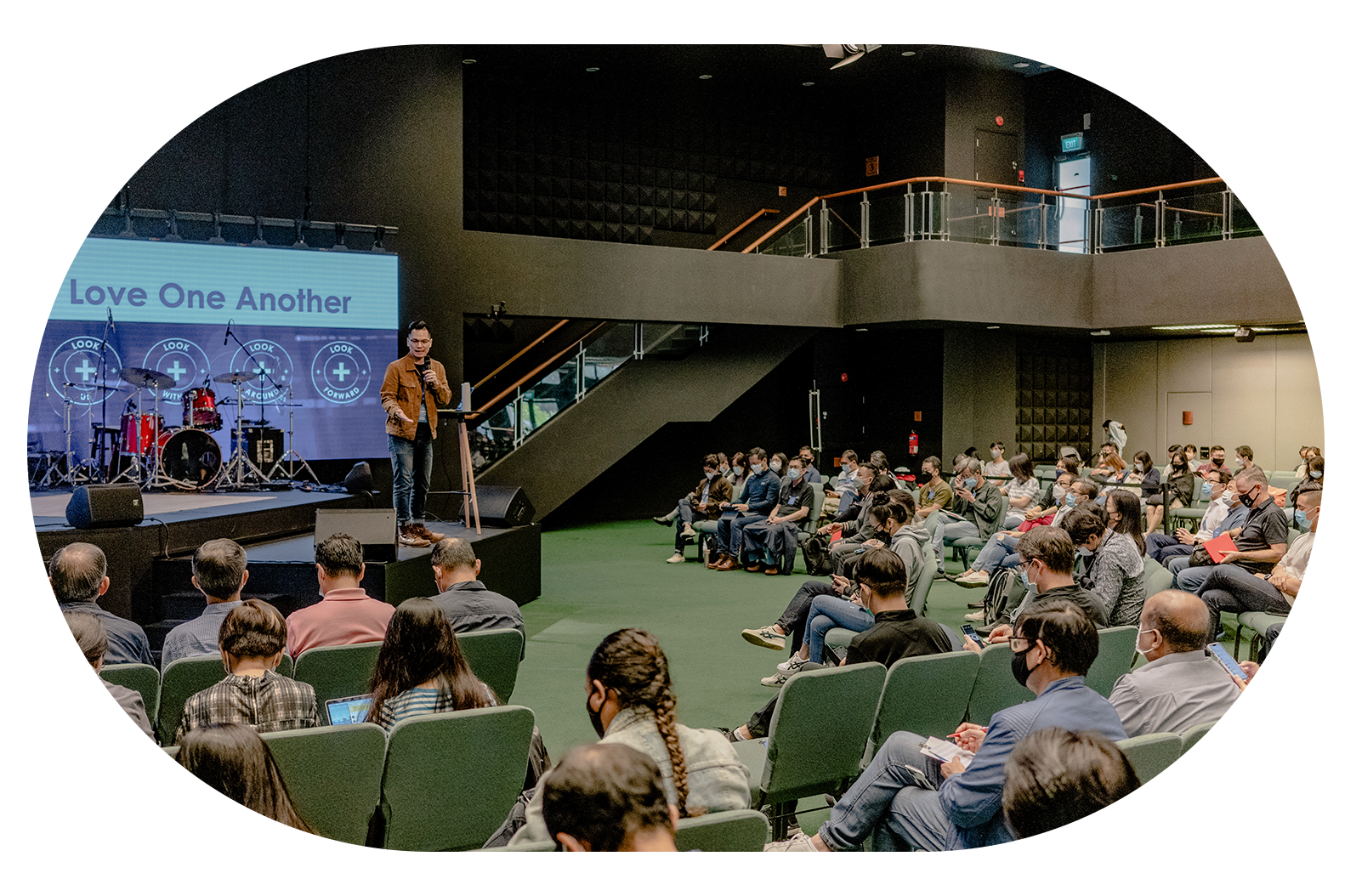
Over the two years, out of the 104 weekends, I believe I preached about 98 or 99 of them.
The reason I did that was because our pastors were very busy. Marriages and families were breaking down, and they had to help.
But people wrote in and said: “Why is Daniel Khong trying to hog the limelight? He’s such an arrogant person.”
And the worst part was, some just spread it among themselves.
Some of our leaders were telling their members: “Don’t attend the FCBC services. Go attend and bring your friends to other services.”
SO STRESSED THAT I COULDN’T SLEEP
It reached a point when I came down with severe anxiety. I would hyperventilate, and I would struggle a lot.
I remember there was one time at NTUC when I started hyperventilating and almost passed out. I had to grab a railing because everything started spinning.
I explained it to my mum (who is a doctor), so she took my blood pressure and found it was way too high for anyone my age.
Then she gave me a machine to monitor my blood pressure three times a day, and it was always very high.
I also had insomnia. There were some weekends I was preaching when I had not slept for over 20 hours. I was just exhausted.
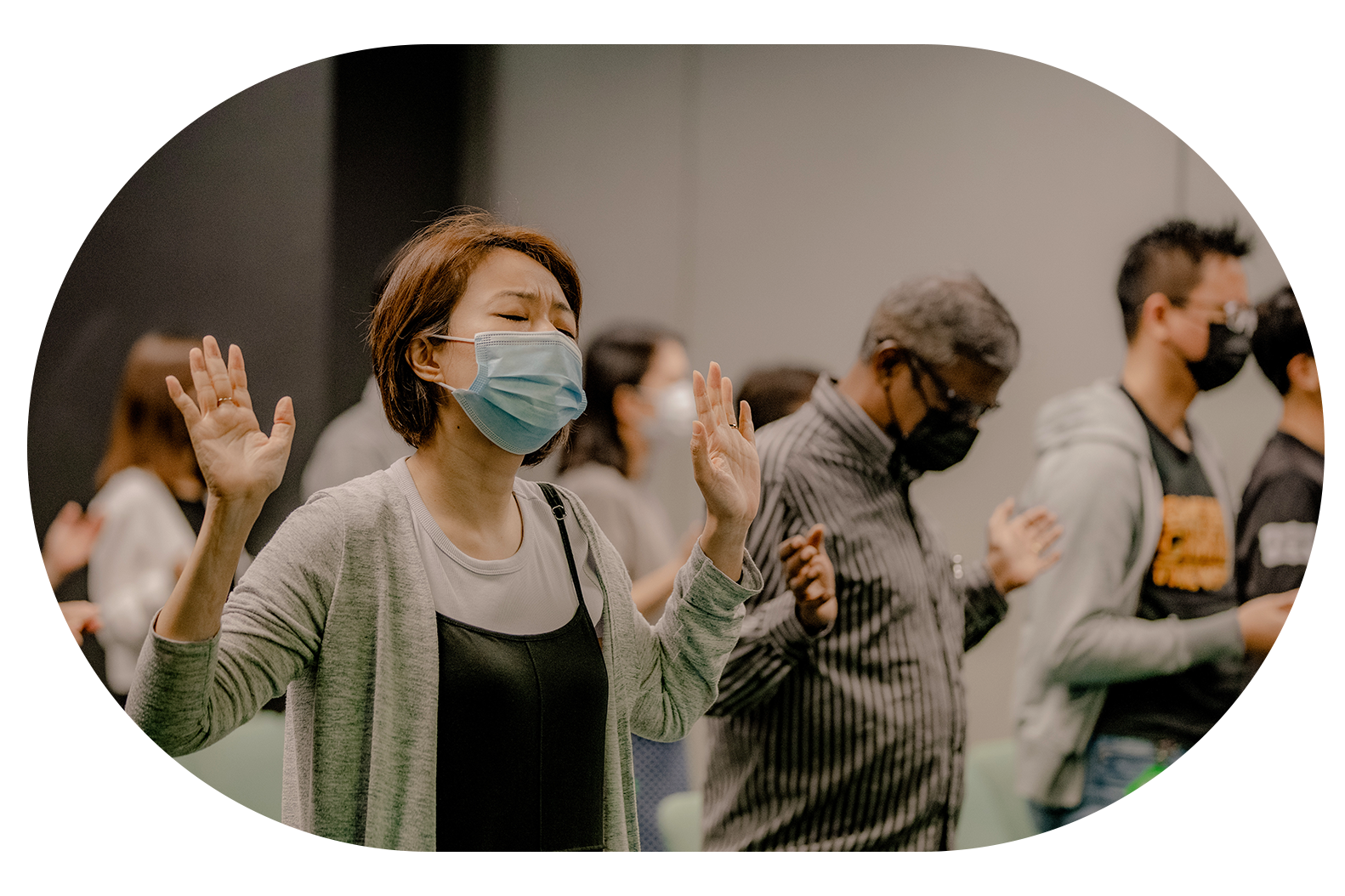
I couldn’t sleep at night. But when I could finally fall asleep, it was a very weird thing.
When it was time to wake up and go to work, I didn’t want to wake up. I didn’t want to get out of bed because it was a big dread to do anything.
I tried to fill my day with activities, but when I lay on my bed, the moment I close my eyes I would see emails and the faces of people who had written in to me.
Some of them I know; some are people whom I have trusted, who have journeyed with me, who have said: “Pastor, I will follow you.”
It was a big struggle.
THE TURNING POINT
Then in 2021, when we were having the LoveSingapore leadership planning retreat, I couldn’t make it for the morning session because I had insomnia.
But my dad showed up and shared with the team what was going on in my life.
In the afternoon, I joined them for breakout time. We were supposed to pray for victory in the pandemic, but all the pastors in my my breakout group didn’t pray for the pandemic.
They decided to pray for me. I can’t remember who started it, but someone released the word: “Daniel, God says you are His chosen person.”
I started crying and crying and crying. What was worse — everyone started to take turns to pray over me, and I started crying even more. I never forgot that.
After we were done with our time of prayer, I remember Pastor Derek (Hong) asked me to stay back. He spent time connecting with me and asked me to share with him what was going on.
I remember we had another hour of just talking. He didn’t give me any solutions or tell me “you better do this, you better do that”.
He just listened to me. He was just there with me.
I really can’t remember what else took place, but I left the place feeling a certain burden lifted. After that, I felt the confidence to go and share with some of the people in church.
But when I did share, there was one senior leader of the church, who has since left, who wrote in and said, “I cannot follow a man who would talk like that.”
So there’s a real stigma around these kinds of things, but I chose to be vulnerable.
Since then, I found that we’ve improved in the area of caring and having a better environment to talk about all this.
We’re still far off, but at least it’s started.
CAN WE HAVE BETTER CONVERSATIONS IN THE CHURCH?
I think we must come to this reality that, emotional and mental health, mental well-being, is something important that we need to address in the Church.
I am reminded of this movement, R U OK?, which started in Australia to help people struggling with depression, mental health and any other issues.
They created this to basically start conversations. Their tagline is: A conversation could change a life.
They’re just asking somebody “Are you okay?” — connecting with them, having that moment of interaction. Knowing that some people feel so alone, but because someone came along and asked “Are you okay?”, that made the difference.
So I thought about this, and last October for World Mental Health Day, I brought a sermon to my congregation.
My message wasn’t “R U OK?”, but I rephrased it and called it: “R WE OK?” And I said: A strong community changes lives.
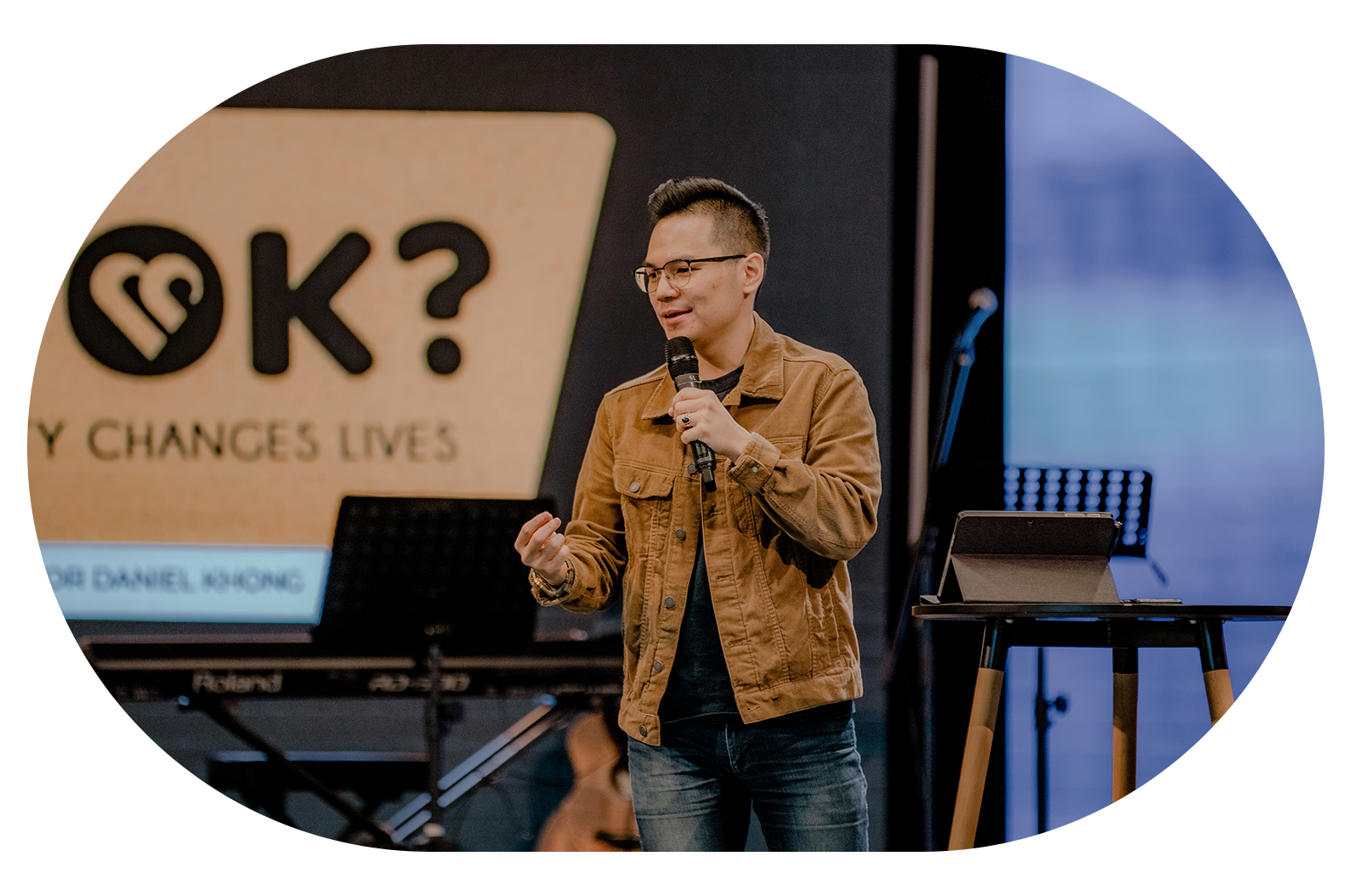
I wasn’t just talking about: “Hey, are we doing okay?” But the question I asked my church is: Are we okay to address and deal with mental health issues? Are we okay with it?
Because the truth is, sometimes we are not okay. We don’t want to know about it; we don’t want to hear about it. Don’t come and talk to me about it.
There were some key findings on mental health published in The Sunday Times a while back (2018).
- More than 5 in 10 are not willing to live with or nearby, or work with, a person with a mental health condition.
- 5 in 10 believe that persons with mental health conditions should not be given any responsibility.
- 6 in 10 believe that mental health conditions are caused by a lack of self discipline and willpower — it’s the person’s fault that they’re having mental health issues.
But there’s an interesting juxtaposition on the other side…
- 7 in 10 people believe that persons with mental health conditions experience discrimination.
- 8 in 10 feel that the best therapy for persons with mental health conditions is to be part of the community.
- 9 in 10 say that there’s a need to adopt a far more tolerant attitude towards those with mental health conditions.
I believe the same views are in the Church as well.
With that, I want to talk about what we can do to create the right environment for mental wellness. These are three very practical things that anybody can do.
A STRONG COMMUNITY CAN CHANGE LIVES
1. Empathise even when we don’t understand
Very often when we talk to people, the truth is, we will never fully 100 per cent understand what that person went through because we are not that person.
We don’t have the same strengths or the same flaws. We don’t have the same background or the same history growing up.
But it’s not about understanding; it’s about empathising.
Sometimes, especially in the Church, we’re very quick to jump to prescribing solutions.
We say: “Oh, I understand what you’re going through. Please read more Scripture in the morning, pray more and that solves everything.”
But there’s a place to empathise — the ability to sense and relate to other people’s thoughts and feelings.
You don’t understand why someone is feeling that way, but the reality is you see this person crying; this person is clearly distraught.
The least we can do is we can empathise.
Love is patient, love is kind. (1 Corinthians 13:4a)
We may not understand, but we can be patient and kind, and we can take the time to empathise.
2. Be present even when we don’t have a solution
What does it mean to be present? It is to accompany someone through whatever it is they’re going through.
The same example applies: crying with somebody, experiencing it together, processing those issues and those emotions together.
The Lord is close to the brokenhearted and saves those who are crushed in spirit. (Psalm 34:18)
The Lord is close — we all know that. But aren’t we also called to be imitators of the Lord?
If the Lord is close to the broken-hearted, should we not be close to the broken-hearted as well? Should we not be present with them through their struggles?
Sometimes it’s not that we don’t have compassion for them or sympathy. But being present with someone is not an easy thing to do; it’s a time-consuming thing.
Sometimes maybe you say that you don’t have the energy to do so. But as we talk about loving one another, are we willing to be present?
3. Love one another even when we aren’t qualified
This has happened in so many areas. Somehow people feel: “If I’m not qualified, I cannot even address it, so I better find somebody else.”
I’m not saying that we’re trying to shirk from responsibility. In fact, part of us is trying to be responsible.
We say: “I don’t want to mess you up any further, so if I’m not qualified, I better not do that.”
So it’s fine — I’m not qualified to really teach, to prescribe any solution for somebody with a mental health condition.
But you know what? I think I can love that person.
There’s no qualification to love that person. Maybe the only qualification is that we must receive the love of God that is in us.
And with that, please go and love, to care, to listen, to make time for that person.
Love never fails. But where there are prophecies, they will cease; where there are tongues, they will be stilled; where there is knowledge, it will pass away. (1 Corinthians 13:8)
Knowledge, intellect, qualifications… these things won’t last forever. But our love — this love that comes from God, divine love, supernatural love — is what will last forever.
We must say: “Dear God, give me a greater capacity to love those around me.”
Because you don’t have a solution, you don’t feel qualified, you don’t quite understand what they’re going through, all the more you must learn to love.
We must ask: “God, give me your strength to love, give me your anointing of love.”
So that we can truly empathise, be present, and continue to love one another.
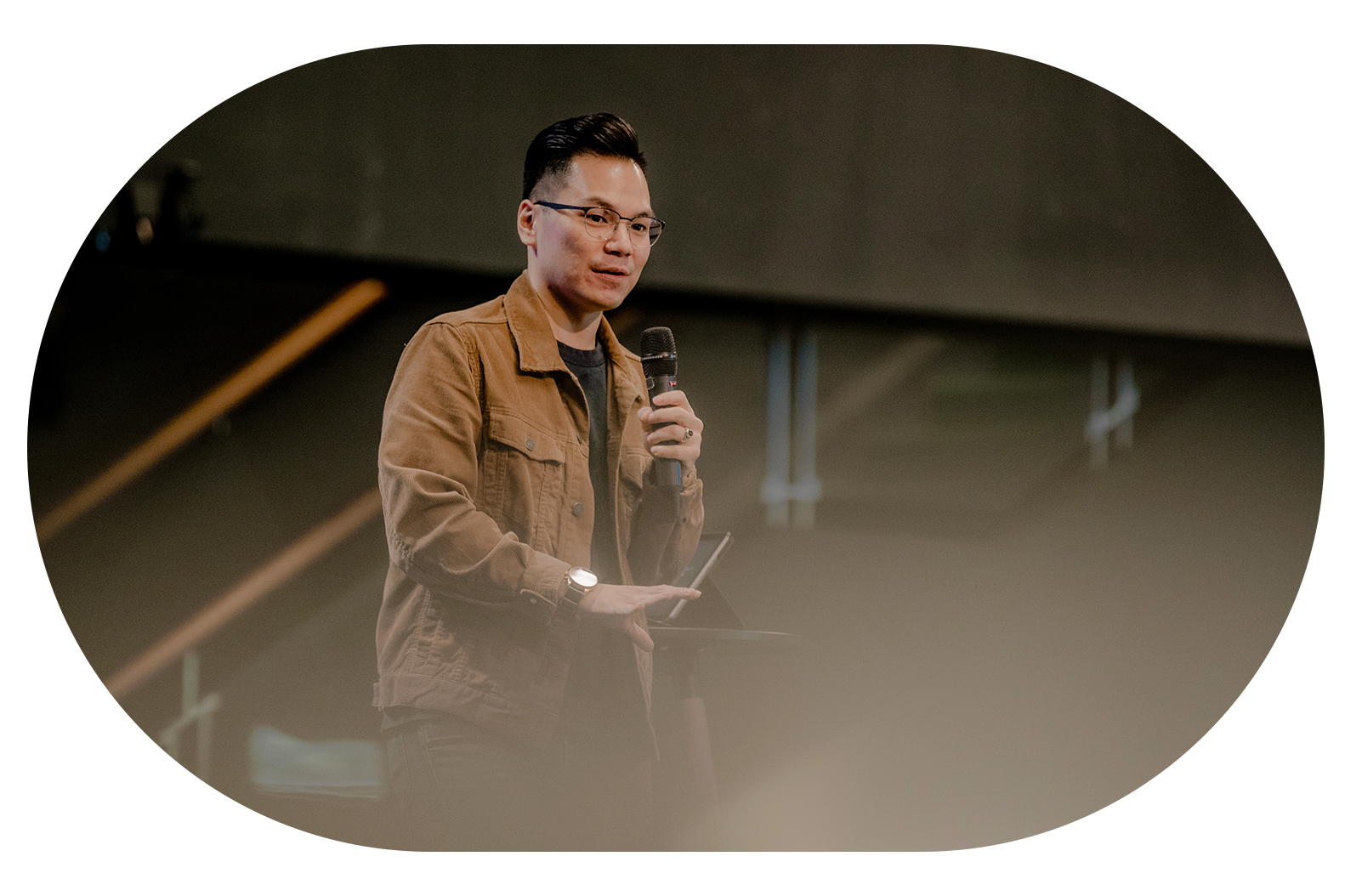
WHY DOES ALL OF THIS MATTER
I’m just sharing very openly because I don’t claim to have a monopoly over anxiety or struggles. I’m sure all of us have struggles through this pandemic.
Sharing openly with one another may not fix everything, but it changes something in our hearts.
As scripture talks about bearing one another’s burdens, in that moment when the pastors prayed for me, when I met up with pastors from other churches, and I talked to our own pastors and my own close circle in the church, at least I felt like I was not carrying this myself.
And after I felt that the burden was lifted, I could lead.
My wife also told me: “You’re back to your normal self.”
For the longest time, she and the HODs on my team felt that I was not “me”.
It was almost I was so afraid that everything I did was going to be wrong, that someone was going to have an opinion about it. I didn’t dare to lead.
But with that, and after the Lord gave me a download, I’ve since recast our church vision, and we’ve reworked our strategy and our values. We are moving ahead.
I think it all starts with knowing that there is a right environment — that is not here to put you down but to lift you up, to help carry that burden together with you.
I pray that we can be this community for one another!
This excerpt is adapted from a session by Daniel Khong, Senior Pastor of Faith Community Baptist Church, on the second day of LoveSingapore’s Summit 2022.
FOR MORE STORIES FROM SUMMIT 2022:
- What burdens are you carrying alone? Who can you confide in?
- How can we give constructive feedback to others that builds up but doesn’t tear down?
- How can you be part of that loving community that Pastor Daniel has described? What areas do you need to work on?


